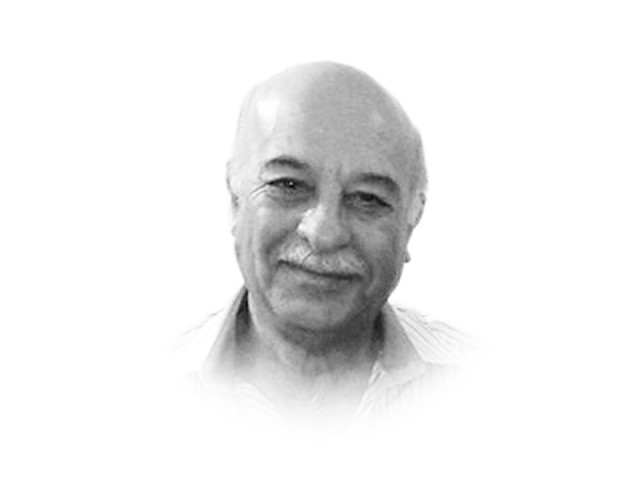Those were the days
Pakistanis used to be able to travel across the world with ease, requiring no visas for more than half of it

It was an April morning in 1979 I think, when my pal Sa’adi called me and said: “Japan jana hai?” After picking myself off the floor and brushing myself off (having fallen off my chair), and regaining my breath, I asked: “Kab?” “Parsoan,” he says. It so happened that his dear father who was to attend a trade fair in Tokyo had fallen ill with a cold and could not travel, entrusting the job to Sa’adi.
Two days later, Sa’adi and I were on a Cathay Pacific flight from Karachi to Tokyo via Hong Kong where we stayed with our college-mate, and now late friend Ilyas Butt (RIP) who was in the carpet business there. After three glorious days in Hong Kong, we boarded a flight for Tokyo, there to be received by young Zahid, a relative of Ilyas’s as also of the late Shorish Kashmiri’s.
Zahid used to live in the central Tokyo district of Ebisu, if memory serves, about a 20-minute walk from our old embassy located in one of the best areas of Tokyo, Azabu, and presented to Pakistan by the late Aga Khan, the present Aga Khan’s grandfather. As an aside, we have done to this precious jewel of a property what we have done to many other of our beautifully-located missions and ambassador’s residences: flogged it!
Anyway, back to our subject, which really is the ease with which we Pakistanis used to be able to travel across the world, requiring no visas for more than half of it, and where necessary could apply for and receive visas even while travelling abroad in countries where we were not resident. About which later.
Japan needs affectionate comment: The very first thing that struck us (Sa’adi had lived in New York City, on Madison and 50th, for many years) was the cleanliness of the city. Whether you were on the ritzy Ginza, or in a side-street sampling local fare in tiny Japanese cafes, or off what they called ‘wagons’ (what we call ‘rehris’), the place was squeaky clean.
As were the utensils in which you were served; the aprons of the cooks; the general air of the place. Remarkable, too, were the shouted welcomes that would greet you as you entered one of the establishments or stopped at one of the wagons. ‘Irrashaimase!’ (Welcome!) the hosts would say. Nowhere else in the world had I experienced this.
The very second was the lack of vehicular noise: even large trucks would drive silently by; there was no smell of fuel fumes in the air; and absolutely no blaring of horns. As we quickly found out, Japan was a highly cultured, polite country, and a delight to be in.
The long and short of it is that despite dispiriting reports from the other participants in the show, we made a success of it and sold everything — even though the site chosen for the fair was the 59th floor of a brand-new but barely tenanted (trust our brilliant babus!) building called Sunshine 60, then the tallest building in Asia but a good one-hour train ride from Central Tokyo.
We even laid out our garments on ‘wagons’ in the main foyer of the building which sent our sales soaring because there was more traffic of shoppers on the ground floor than on the 59th. I recall the then ambassador Mr Qamarul Islam holding us up as examples of hard work as we were the only participants who cleared their dues owed to the government!
Throughout the many years I then spent in Japan as an upshot of that first visit, I not once had a bad business experience finding the Japanese true to their word and so helpful towards their business associates.
A few words on the ease with which one could travel then. The now deceased American airline Pan American World Airways or Pan Am (which too used to fly to Karachi among so many others) came up with an Around the World in 80 Days fare in which you would travel around the world on a ticket costing $800 (!) and which was valid for a whole year.
The problem was a US visa which I had never applied for before then. So off I marched to the US Embassy in Tokyo, filled out a simple form, and handed it to the Japanese gentleman processing the applications. It was 10.30 in the morning I guess. “Please come back at 3pm and pick up your passport,” he said.
I had a snack at a small restaurant near there, walked around the Imperial Palace moat, sat down to read one of my favourite authors Yukio Mishima and when it was close to three, walked to the US embassy and picked up my passport duly stamped with a five-year visa! Compare this with the angst most embassies (thankfully not the Americans) give you: even the Sri Lankans who too have withdrawn visa-free travel to their country by Pakistanis.
Indeed, travelling by air within the United States was like travelling by bus, with families literally walking to the entrance to the pier (when they appeared at airports) and up to the plane itself at small airports. By God, how the world has changed for the worse.
The past WAS another country, another world.
Published in The Express Tribune, December 5th, 2014.
Like Opinion & Editorial on Facebook, follow @ETOpEd on Twitter to receive all updates on all our daily pieces.















COMMENTS
Comments are moderated and generally will be posted if they are on-topic and not abusive.
For more information, please see our Comments FAQ